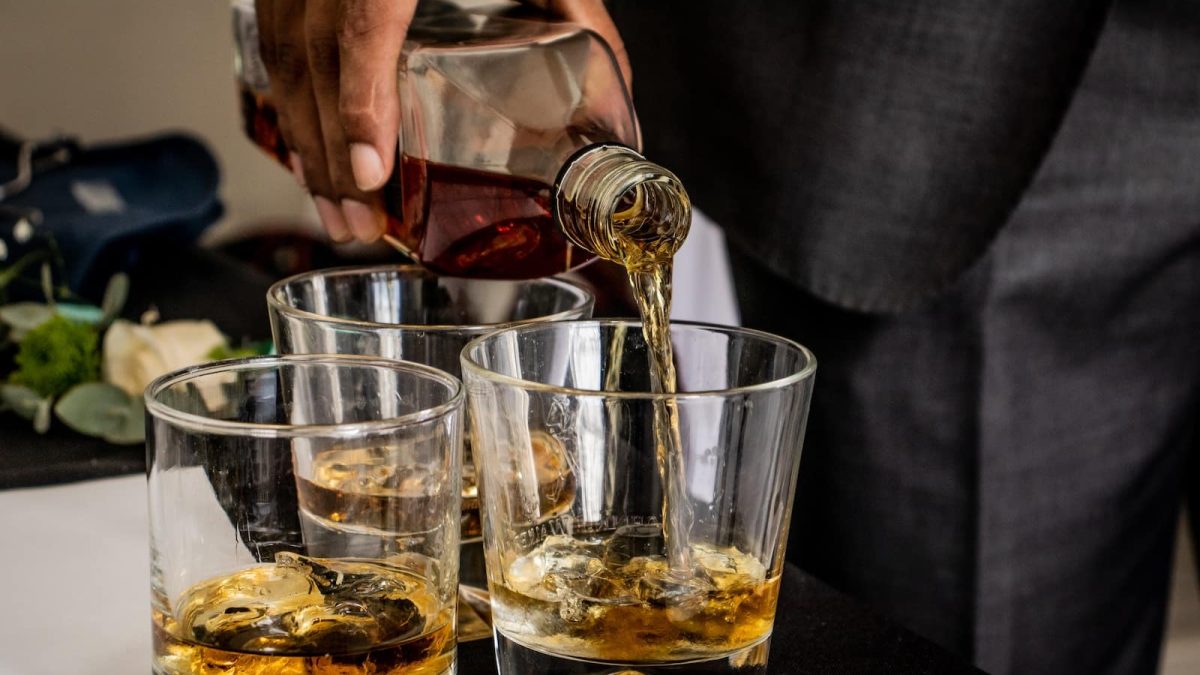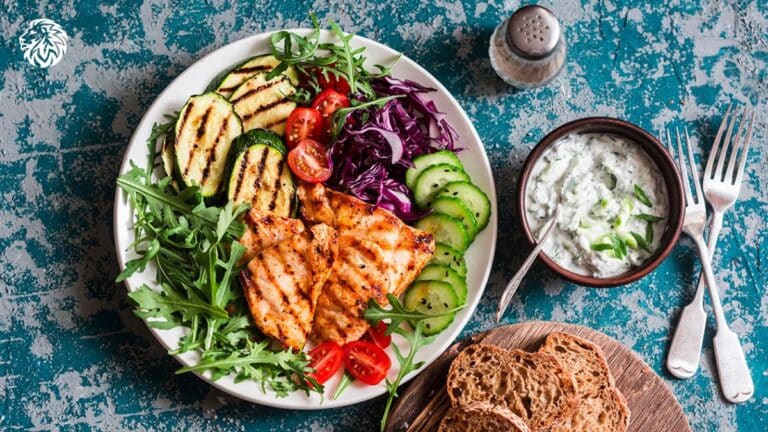Whiskey, a popular distilled alcoholic beverage, has long been enjoyed by many as a sophisticated choice for a nightcap or a way to unwind after a long day. However, with increasing health consciousness, people have begun to question whether indulging in their favorite drink could lead to weight gain. In this article, we will delve into the science behind alcohol consumption, explore the link between whiskey and weight gain, and provide tips on how to enjoy your drink responsibly without compromising your health goals.
Understanding the Basics of Alcohol and Calories
Before we delve into the relationship between whiskey consumption and weight gain, it is essential to understand the basics of alcohol and calories. This knowledge will help you make informed decisions about your whiskey intake and its potential impact on your weight.
Caloric Content of Whiskey:
Whiskey is made through the distillation of fermented grain mash, which typically includes barley, corn, rye, or wheat. The caloric content of whiskey comes from its alcohol content, as well as any residual sugars or carbohydrates. A standard 1.5-ounce (44ml) serving of whiskey contains approximately 97 calories, depending on the proof and brand. Whiskey is usually 80 to 100 proof, which means it contains 40-50% alcohol by volume (ABV).
It is worth noting that whiskey is relatively low in calories compared to other alcoholic beverages, especially when considering its alcohol content. For example, a 12-ounce (355ml) serving of beer typically contains around 150 calories, while a 5-ounce (148ml) serving of wine has around 125 calories.
Alcohol and Metabolism:
When you consume alcohol, your body prioritizes metabolizing it over other sources of energy, such as carbohydrates, fats, and proteins. This is because alcohol is a toxin that the body needs to eliminate quickly. The liver is responsible for metabolizing most of the alcohol you consume, breaking it down into acetic acid, which is then further metabolized and eventually used as energy or stored as fat.
It is important to note that while the liver is busy processing alcohol, the body’s metabolism of other nutrients may slow down, potentially leading to weight gain. Additionally, alcohol consumption can temporarily reduce the body’s ability to burn fat, as the energy from alcohol takes precedence. This can result in a higher percentage of calories from other sources being stored as fat.
Understanding the caloric content of whiskey and how alcohol affects metabolism is crucial when evaluating the link between whiskey consumption and weight gain. While whiskey is relatively low in calories compared to other alcoholic beverages, excessive consumption can still lead to weight gain due to its impact on metabolism and the body’s ability to burn fat.
Whiskey versus Other Alcoholic Beverages

When it comes to alcoholic beverages, whiskey is just one option among many, including beer, wine, and various cocktails. To understand whiskey’s potential impact on weight gain compared to other alcoholic drinks, we must compare their caloric content and evaluate the factors influencing weight gain.
Comparing Caloric Content:
As mentioned earlier, a standard 1.5-ounce (44ml) serving of whiskey contains approximately 97 calories, depending on the proof and brand. When compared to other popular alcoholic beverages, whiskey is relatively low in calories, particularly when considering its alcohol content:
Beer: A 12-ounce (355ml) serving of beer typically contains around 150 calories. However, the calorie content can vary depending on the type of beer, with light beers having fewer calories and craft beers often having more.
Wine: A 5-ounce (148ml) serving of wine has around 125 calories. Similar to beer, the calorie content can vary depending on the type of wine, with red wines generally having more calories than white wines.
Cocktails: Cocktails can vary significantly in calorie content, depending on the ingredients used. Many cocktails contain added sugars or high-calorie mixers, which can quickly increase the overall calorie count. For example, a 4.5-ounce (133ml) serving of a margarita can have around 168 calories, while a piña colada can contain as much as 490 calories in a 6.5-ounce (192ml) serving.
Evaluating the Impact on Weight Gain:
When assessing the impact of various alcoholic beverages on weight gain, it is essential to consider not only the caloric content but also other factors, such as alcohol content and sugar content. While whiskey is lower in calories than many other alcoholic drinks, it is relatively high in alcohol content. As previously discussed, alcohol can negatively impact metabolism and fat burning, contributing to weight gain if consumed excessively.
On the other hand, beverages like beer and wine generally have lower alcohol content but may contain more calories due to the presence of carbohydrates. Moreover, cocktails can be particularly detrimental to weight management due to their high sugar and calorie content, which can lead to increased fat storage and weight gain.
Whiskey fares relatively well when compared to other alcoholic beverages in terms of caloric content. However, its alcohol content and the impact on metabolism must be considered when evaluating its potential influence on weight gain. Ultimately, moderation and mindful consumption are critical for enjoying any alcoholic beverage without risking weight gain.
Factors Affecting Whiskey’s Influence on Weight

The impact of whiskey consumption on weight gain is not uniform for everyone. Several factors can influence how whiskey affects an individual’s weight, including genetic predispositions, consumption patterns, and lifestyle choices. Understanding these factors can help you make informed decisions about your whiskey intake and its potential impact on your weight.
Individual Differences:
Each person’s body responds differently to alcohol consumption due to genetic factors, metabolism, and overall health. Some individuals may be more prone to weight gain from alcohol, while others might experience minimal effects. Factors such as age, sex, and body composition also play a role in determining how alcohol influences weight gain.
For example, women generally have a lower tolerance for alcohol and may experience more significant weight gain from consuming the same amount of alcohol as men. Additionally, as people age, their metabolism typically slows down, making it more challenging to maintain a healthy weight even with moderate alcohol consumption.
Consumption Patterns:
The frequency and quantity of whiskey consumption significantly influence its impact on weight. Occasional, moderate whiskey drinkers may not experience any significant weight gain, while excessive or binge drinking can lead to increased caloric intake and disrupted metabolism, resulting in weight gain.
Drinking whiskey with meals can also affect weight gain. Consuming alcohol with food may lead to increased caloric intake, as alcohol can stimulate appetite and reduce inhibitions, making it more likely to overeat.
Lifestyle Factors:
Lifestyle choices, such as diet and exercise, play a significant role in determining the impact of whiskey consumption on weight. A well-balanced diet and regular physical activity can help offset the potential weight gain from moderate whiskey consumption. Conversely, a sedentary lifestyle and poor dietary choices can exacerbate the negative effects of alcohol on weight management.
Moreover, it is essential to consider how whiskey is consumed. Drinking whiskey neat or on the rocks will have fewer calories than whiskey-based cocktails with sugary mixers, syrups, or soft drinks.
The influence of whiskey on weight gain is highly individual and depends on various factors, including genetic predispositions, consumption patterns, and lifestyle choices. By being mindful of these factors and making adjustments accordingly, you can enjoy whiskey without compromising your weight management goals.
Tips for Incorporating Whiskey into a Healthy Lifestyle

Whiskey can be enjoyed as part of a healthy lifestyle when consumed responsibly and in moderation. By following a few simple tips, you can savor your favorite tipple without compromising your health goals or risking weight gain.
Moderation is Key:
Moderate alcohol consumption is generally defined as up to one drink per day for women and up to two drinks per day for men, with one drink being a 1.5-ounce (44ml) serving of whiskey. By sticking to these guidelines, you can minimize the potential negative effects of alcohol on your weight and overall health.
Keep in mind that these recommendations are not meant to be an average over several days but rather a daily limit. Avoid “saving up” your drinks to consume more on a single occasion, as binge drinking can have negative health consequences and contribute to weight gain.
Being Mindful of Mixers:
When enjoying whiskey, consider how it is consumed. Drinking whiskey neat or on the rocks will add fewer calories to your diet than whiskey-based cocktails that include sugary mixers, syrups, or soft drinks. Opt for low-calorie or calorie-free mixers, such as club soda or plain water, if you prefer to mix your whiskey. Additionally, avoid adding unnecessary sweeteners or garnishes that can increase the calorie count of your drink.
Balancing Your Diet and Exercise:
Maintaining a healthy lifestyle involves not only responsible alcohol consumption but also a balanced diet and regular physical activity. Ensure you consume a diet rich in fruits, vegetables, whole grains, lean proteins, and healthy fats to provide your body with the essential nutrients it needs to function optimally.
Incorporate regular exercise into your routine, aiming for at least 150 minutes of moderate aerobic activity or 75 minutes of vigorous aerobic activity per week, along with strength training exercises at least twice a week. Regular exercise can help counteract the potential weight gain from alcohol consumption and promote overall health and well-being.
By practicing moderation, being mindful of mixers, and maintaining a balanced diet and exercise routine, you can incorporate whiskey into a healthy lifestyle without sacrificing your weight management goals or overall health. Enjoy your favorite drink responsibly and savor the experience without guilt or worry.
Debunking Common Whiskey Weight Gain Myths

Misconceptions surrounding whiskey and weight gain have led to various myths that can cause confusion and unnecessary worry for whiskey enthusiasts. In this section, we will debunk some of the most common whiskey weight gain myths to help set the record straight and provide clarity on the subject.
Myth 1: Whiskey is high in calories and sugar
Fact: Whiskey is relatively low in calories compared to other alcoholic beverages, with approximately 97 calories per standard 1.5-ounce (44ml) serving. Additionally, most whiskeys contain minimal residual sugar, as the majority of the sugar from the grain is converted into alcohol during the fermentation process. Any perceived sweetness in whiskey is often due to the natural compounds present in the grains and the aging process in wooden barrels, rather than added sugars.
Myth 2: Drinking whiskey will automatically lead to weight gain
Fact: Moderate whiskey consumption does not guarantee weight gain. While excessive alcohol consumption can contribute to weight gain, responsible and moderate whiskey intake can be part of a healthy lifestyle when combined with a balanced diet and regular physical activity.
Myth 3: Whiskey is more fattening than other types of alcohol
Fact: The calorie content of whiskey is comparable to, if not lower than, many other alcoholic beverages, especially when considering its alcohol content. Factors such as individual differences, consumption patterns, and lifestyle choices determine the impact of whiskey on weight, similar to other types of alcohol.
Myth 4: Drinking whiskey before bed will cause weight gain
Fact: While consuming alcohol before bed can disrupt sleep and potentially affect metabolism, there is no direct link between having whiskey as a nightcap and weight gain. The key is to consume whiskey in moderation and ensure that your overall caloric intake remains within a healthy range.
Myth 5: Whiskey can replace a meal without causing weight gain
Fact: Although whiskey contains calories, it does not provide the essential nutrients, vitamins, and minerals required for a balanced diet. Relying on whiskey as a meal replacement can lead to nutrient deficiencies and potential weight gain due to poor diet quality.
Understanding the facts and debunking common whiskey weight gain myths can help you make informed decisions about your whiskey consumption and its potential impact on your weight. By practicing moderation and maintaining a healthy lifestyle, you can continue to enjoy whiskey without the fear of weight gain.
Conclusion

While it is true that excessive consumption of any alcoholic beverage can lead to weight gain, moderate and responsible enjoyment of whiskey does not automatically result in packing on the pounds. By understanding the science behind alcohol, monitoring your intake, and maintaining a healthy lifestyle, you can continue to savor whiskey without the fear of weight gain.
FAQs
How many calories are in a typical serving of whiskey?
A standard 1.5-ounce (44ml) serving of whiskey contains approximately 97 calories, depending on the proof and brand.
Is whiskey more or less calorie-dense than other alcoholic beverages?
Whiskey is relatively low in calories compared to other alcoholic drinks like beer, wine, and cocktails that may contain added sugars or high-calorie mixers.
Can moderate whiskey consumption be part of a healthy diet?
Yes, moderate whiskey consumption can be part of a healthy diet when coupled with a balanced meal plan and regular exercise.
What is considered moderate whiskey consumption?
Moderate whiskey consumption is generally defined as up to one drink per day for women and up to two drinks per day for men, with one drink being a 1.5-ounce (44ml) serving.
How can I enjoy whiskey without risking weight gain?
To enjoy whiskey without risking weight gain, consume it in moderation, be mindful of mixers, and maintain a balanced diet and regular exercise routine.
References:
- Centers for Disease Control and Prevention (CDC). (2021). Alcohol and Public Health: Frequently Asked Questions. https://www.cdc.gov/alcohol/faqs.htm
- National Institutes of Health (NIH). (2021). Rethinking Drinking: Alcohol and Your Health. https://www.rethinkingdrinking.niaaa.nih.gov/How-much-is-too-much/Is-your-drinking-pattern-risky/Whats-Low-Risk-Drinking.aspx
- World Health Organization (WHO). (2018). Global Status Report on Alcohol and Health 2018. https://apps.who.int/iris/bitstream/handle/10665/274603/9789241565639-eng.pdf







